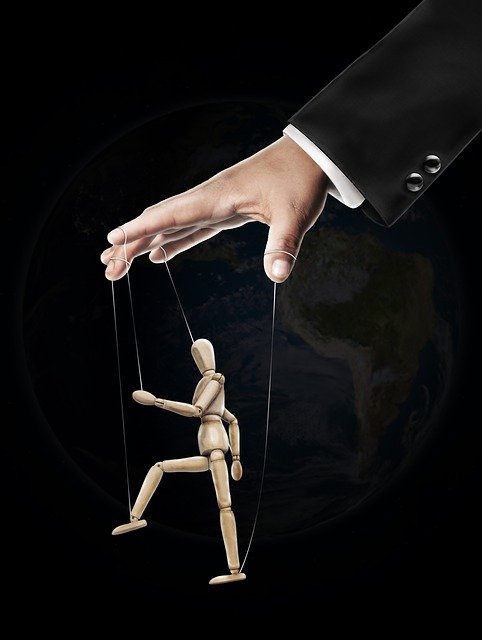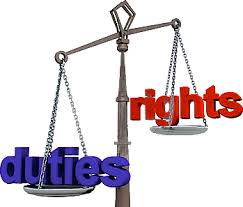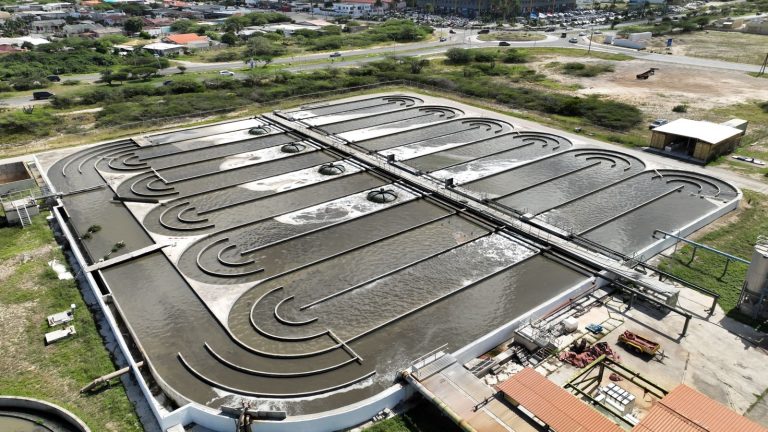How will you cast your vote next time?
#YourFavoriteColumnist is fond of politics, not so fond of many politicians. As the countdown to the upcoming elections begins, it’s becoming evident that the political landscape is already in full motion, with politicians hitting the campaign trail. In less than a year, voters will once again find themselves at a crossroads, faced with the critical decision of choosing the individuals who will shape the course of their nation. But as the excitement of election season builds, it’s important to pause and reflect on a pressing question:
Are we casting our votes for true politicians, or are we inadvertently supporting the political operators that have come to pervade the landscape?
In a world where opportunism, demagogy, and cheap politicking have blurred the lines between genuine leadership and self-serving agendas and nepotism, it’s imperative that we decipher who truly deserves our trust and mandate. The spotlight is on us, the electorate, the people, the voters, as we navigate the intricate web of promises and actions that define the path forward. Will we allow the altruism of politics to be supplanted by the egoism of politicking?
Alarming rate of corruption
Officials elected by the people and closely associated with the highest positions in the government of Aruba have been accused – and some convicted – of corruption charges at an alarming rate. It seems that, despite the numerous local laws in place to combat corruption and the good governance obligations that exist, nothing stops them. In their eagerness to increase their personal interest, they forget the ethics that should govern their conduct, defraud the public treasury, and betray the trust of the people they are accountable to. Many call themselves politicians when in reality they are mere political operators. Currently, the true meaning of governing for the collective well-being has been so distorted that they accept misguided models of what it means to serve the public. They confuse political machinations or cheap politicking or opportunism with the practice of politics.
Let’s define “political machinations”. It refers to the often self-serving and manipulative actions taken by individuals involved in politics, particularly with the intention of advancing personal interests rather than genuinely serving the public. Also, “politicking”. Politicking is the degeneration of politics: the selfish use of power or public position for purposes of vanity or impoverishment. It unfolds in the midst of dastardly machination, vulgarity, mimicry, defectors, the absence of ideas and the lack of ideals. There, the action as a politician ends.
Politician
Being a politician goes beyond being elected to a public office. Lately, the personal aspiration of some government officials has turned into being able to walk in a suit and tie and collecting the title of “honorable,” which they dishonor with their behavior. It’s frustrating for citizens to endure the daily decline in quality of life due to the presence of figures whose purpose in entering or seeking re-election in political affairs is to engage solely in political machinations.
Where we are
Among the general population, there’s a prevailing apathy towards politics that highlights the need to relearn basic concepts. Many utter phrases like “I don’t like politics‘ ‘ or “They are all the same, green yellow it doesn’t matter“, “I don’t know who else to vote for”. In reality, they are (sick and) tired of seeing political operators pretending to be politicians. It’s crucial for us, the voters, to distinguish the roles of political leaders to avoid selecting political operators for public service.
Practice of politics
A basic definition of the concept of politics allows us to understand that it’s linked to the art of governing for the collective well-being. In the practice of politics, leaders are expected to address various essential aspects to achieve the quality of life for all citizens across different social strata that coexist in the territory. Upholding justice, ensuring quality in essential services, defending the rights of constituents, responsibly managing public funds, protecting political boundaries and the territory’s natural resources are some functions of a political leader. Similarly, elected officials have the duty to prevent the proliferation of social ills that affect their constituents, such as corruption, crime, child abuse, mental health, usury, oppressive control, and nepotism, which all significantly disrupt citizens’ quality of life. History has shown that – despite random exceptions – the reality is quite different.
Political machinations
In contrast, the concept of political machinations is a distortion of the practice of politics, tied to individuals who use demagoguery in their discourse to win the favor of the people while failing to govern effectively. The goal of a political operator is to attain power to fulfill personal interests, and to achieve this, they resort to tricks and false promises they won’t uphold – and they know ahead of time that they won’t. In other words, they make citizens believe they will advocate for their interests, but their actions prove otherwise. They submit meaningless annual budgets. What this submit is inelastic and needs to be and is supplemented by the puppets in parliament. Accountability seems to be an unknown concept.
Demagoguery has become the preferred mechanism of political operators to attract voters who believe in their empty promises. The political operator tells the constituents what they want to hear, knowing they won’t follow through and who will forget about their voters for four (4) years as soon as they are elected. Worst of all the voters accept this only to be lured again in the next election. This cycle fueled by deception is the green light citizens give them to commit acts of corruption. Demagogy is usually accompanied by opportunism and cheap politicking.
Corruption
Undoubtedly, one of the social ills that corrupts society is corruption, which is closely tied to political machinations. The creativity to defraud the public treasury ranges from inflating contributions directed towards a government agency, conspiring to privatize services once offered by the government so that friends or allies in power can profit, devising strategies to camouflage illegal campaign contributions as “legal,” to the act of accepting bribes to favor the profits of certain individuals who will benefit from doing business with the government or get say valuable real estate from the government.
Corruption destroys society, but reelecting elected officials to positions of power who enact laws benefiting their allies above the constituents’ interests makes the electorate – yes, you the voter – complicit in the wrongdoings of political operators that undermine their quality of life. Those who promote gentrification, maintain an ineffective healthcare system, defend nepotism in giving government jobs, raise the cost of basic services, approve projects that destroy and privatize natural resources, or defunding the Central Accounting Services (Centrale Accountants Dienst), ignoring the State Council (rRaad van Advies), ignoring the Audit Court (Algemene Rekenkamer) and the system are part of the aftermath of choosing, out of partisan fanaticism, those who will be responsible for legislating and governing. The priorities of those called to govern become evident when they leave the framework of government agencies that don’t serve the constituents well unchanged. It might even be considered a consequence of corruption when one branch of power, through partisan politics, approves and controls the appointments of officials responsible for overseeing key processes and procedures. By approving appointments that are (more often than sometimes) tied to a political ideal, they provide cover and embellish the wrongdoings. At times, it appears that verdicts encourage continuing acts of corruption instead of curbing and attempting to eradicate this societal evil. It even seems that as the days go by the powers that be become less and less concerned with common decency and blatantly insult the little intelligence we have with their rhetoric.
In a disheartening parallel, it’s difficult to comprehend the actions of a former prime minister who actively supports and defends convicted members of their own party, thus making a mockery of our court system and our democratic traditions. While those currently in government have shown similar signs when those in the inner circle happen to embezzle public funds and are shielded from Dutch prosecution. Such instances only serve to underscore the dire need for a rejuvenation of the principles that guide our political landscape, lest the foundations of justice and accountability crumble beneath the weight of opportunistic self-interest. As long as political operators are allowed to profit from the daily suffering of the people, there will be no progress in collective well-being. Many aspire to have a good quality of life, for their kids and for themselves, yet they maintain complete folly by choosing political operators who usurp the role of what a politician should be and do. To put an end to corruption, citizens committed to defending the interests of the people must be decided and must take action where and when it matters most. When casting that vote!
How will you cast your vote next time?
In a landscape marred by politicking, the essence of genuine politics withers away. The eloquently defined degradation of the political sphere, marked by the selfish exploitation of power and public positions, is a distressing reality that threatens the very fabric of our democratic society. The disheartening presence of dastardly machinations, vulgarity, mimicry, and defectors paints a grim picture of a realm that has lost its moral compass. As we witness the altruism of politics being supplanted by the egoism of politicking, the true aspirations of public service become obscured by personal gain. The significance of distinguishing between these two realms cannot be overstated, for in the confusion between the two lies a perilous trap that endangers the stability of democracy itself. The rise of populism, often dubbed the “wizard of the 20th century,” serves as a stark reminder of the consequences of succumbing to the allure of politicking.
As we approach the horizon of our next elections, the weight of this realization hangs heavy. Our choices will echo through history, defining the course of our nation not just for today, but for the generations to come. The future of our democracy hinges on our ability to recognize the distinction between true politicians and those ensnared by the egoistic clutches of politicking. As we stand at this critical juncture, the question remains or is: How will you cast your vote next time?
















